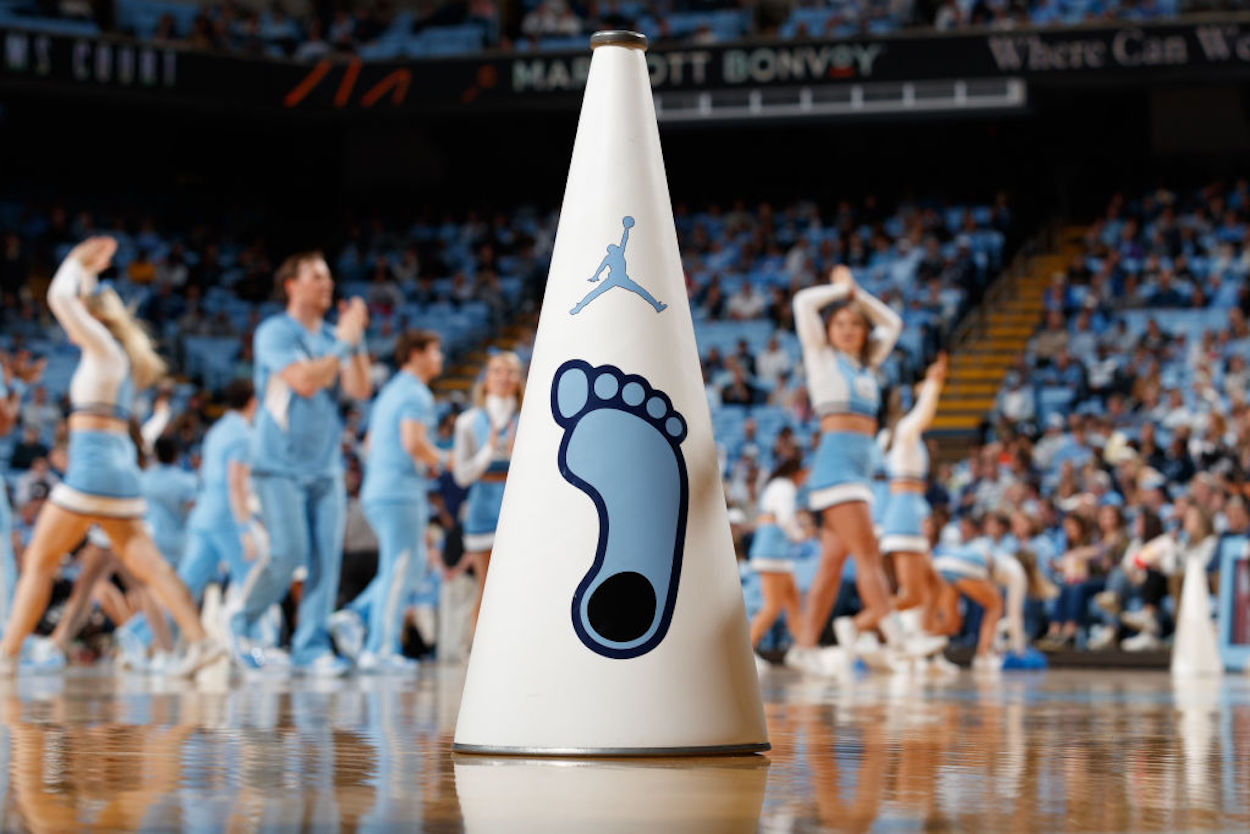NCAA
Why Is the University of North Carolina Called the Tar Heels?

Not many men’s college basketball programs have been more dominant than the North Carolina Tar Heels.
UNC has the third-most national championships ever, only behind UCLA and Kentucky. The program has also produced some of the greatest NBA players we've ever seen, like Michael Jordan, James Worthy, and Vince Carter.
And while the name “Tar Heels” stands tall in basketball lore, it can seem a bit strange. Most teams go by an intimidating name — think Hurricane, Panthers, or Demon Deacons within the ACC alone — and UNC's moniker doesn't seem to fit that bill.
With that in mind, let's step back into history and explore the origins of the term Tar Heel.
North Carolina has historically been a college basketball powerhouse
In sports, things tend to move in a cycle. And while every program will have high and low points, the University of North Carolina's men's basketball program has piled up plenty of positives over the years.
The Tar Heels' success dates back to the 1940s. The program reached its first national championship game in 1946, but it didn’t win its first title until a little over a decade later, in 1957.
Shortly thereafter, though, things went to the next level. In 1961, the legendary Dean Smith took over as head coach; from there, the rest is history.
UNC reached the Final Four under Smith in three consecutive seasons between 1967–1969, making one national title game appearance during that span. While that would be an impressive resume for most programs, the best was yet to come.
North Carolina recorded 11 Final Four appearances with the legendary coach and made it to the national championship game five times. The Tar Heels won Smith his first championship in 1982 with Michael Jordan, James Worthy, and Sam Perkins before winning another 11 years later in 1993.
Smith’s tenure in Chapel Hill ended after 1997, but the success didn't end there.
Bill Guthridge took the team to two Final Fours in 1998 and 2000. There were then some lean yaers with Matt Doherty at the helm before UNC became dominant again, thanks to Roy Williams.
Williams led the Tar Heels to five Final Fours and four national title games. They won three championships under his leadership, confirming their place as college basketball royalty.
While some may have feared a regression following another coaching change, Hubert Davis didn't miss a beat during his first season in charge. He led the Tar Heels to the national title game, and while they didn't win, beating Duke in the Final Four and ending Coach K's career certainly went over well in Chapel Hill.
The 2022-23 campaign, however, turned out to be a disaster. The program started the year atop the rankings but tumbled down the pecking order. UNC finished the year with a 20-13 record, missed the NCAA Tournament, and chose not to participate in the NIT.
North Carolina took the Tar Heels name from state history
So now that we've established North Carolina's basketball credentials, let's address their name. Why is the program called the Tar Heels?
The term, unsurprisingly, comes from history. North Carolina was once known for producing naval industry supplies, and that set the stage for a now-famous nickname.
“Workers who distilled turpentine from the sticky sap of pine trees and burned pine boughs to produce tar and pitch often went barefoot during hot summer months and undoubtedly collected tar on their heels,” the school’s alumni website reads. “To call someone a ‘rosin heel’ or ‘tar heel’ was to imply that they worked in a lowly trade.”
While that's not the most flattering term, North Carolina natives started using it in a different sense during the Civil War.
“North Carolina soldiers flipped the meaning of the term and turned an epithet into an accolade,” the alumni site reads. “They called themselves ‘tar heels’ as an expression of state pride. Others adopted the term, and North Carolina became widely known as the ‘Tar Heel State.’”
There are accounts from the conflict, like this one preserved by North Carolina's Department of Natural and Cultural Resources, where the term was used to suggest bravery on the battlefield. While other soldiers fled, North Carolinas stood firm as the (metaphorical) tar on their heels kept them affixed to the front line. There are also more apocryphal tales related to the term, like North Carolina being hesitant to succeed from the Union or that soldiers crossing the state's rivers were left with muddy feet.
Regardless of your preferred story, though, the nickname stuck (pun not intended. And when the University of North Carolina was looking for a nickname, Tar Heels proved to be the obvious fit.
From there, the rest is history.











